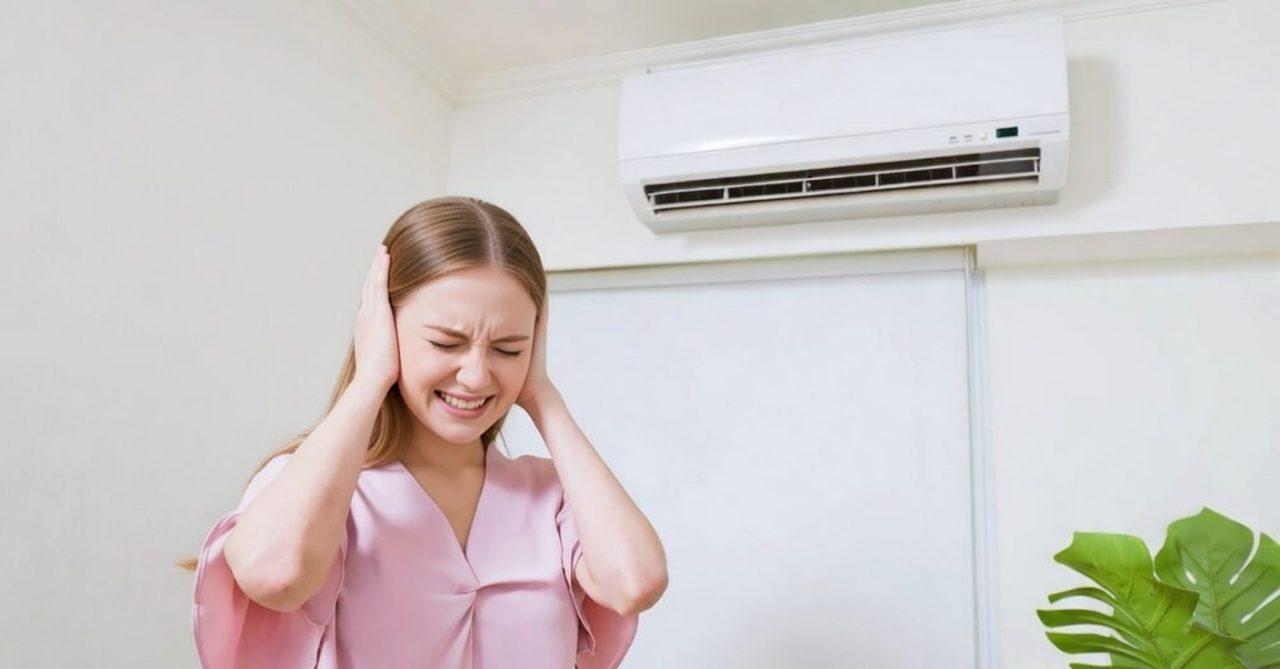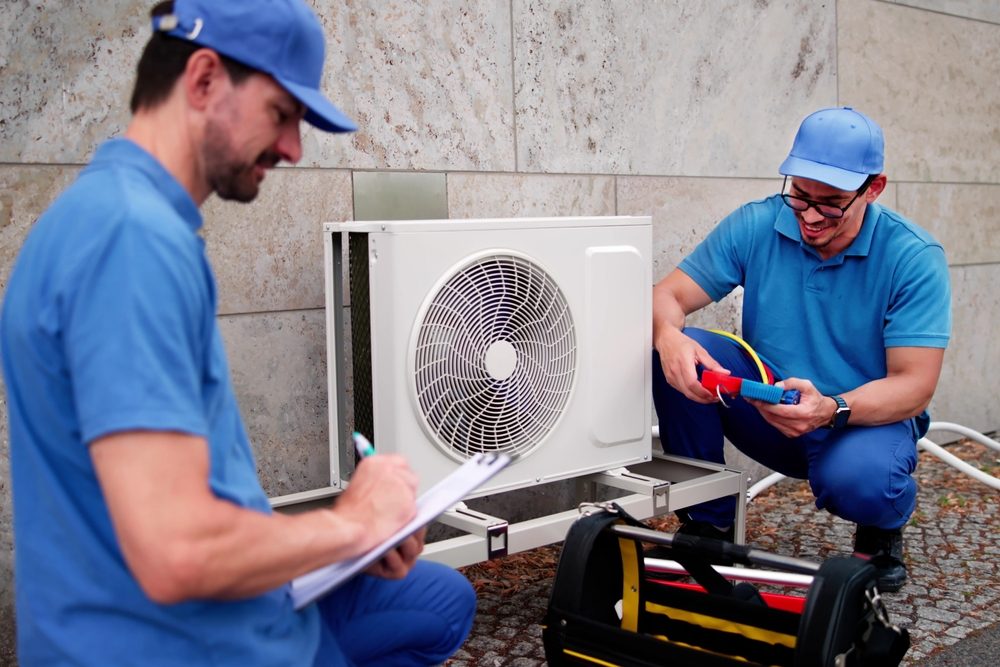
The term mildew usually refers to kinds of mold or fungus, often with a flat or powdery appearance. While the term is often used interchangeably with mold, mildew usually refers to specific species that thrive on damp surfaces, especially in indoor environments. Which is why it’s something that AC owners need to be aware of as it can cause serious issues.
If mildew is in your AC unit, then it’s more than just an unpleasant smell you’re dealing with. It can in fact be a potential health hazard. The problem is that AC systems create a breeding ground for mold and mildew as they generate condensation, circulate moist air, and can accumulate dust which then acts as a food source. If moisture isn’t properly drained or if filters and ducts aren’t regularly cleaned, mildew can take hold in the internal workings.
Then, when your AC is switched on, spores from the mildew are dispersed through your home which can trigger allergies, make asthma worse, and lead to other respiratory issues. This is particularly problematic amongst children, the elderly, or those with weakened immune systems. In addition to the health implications, there’s a very unpleasant musty smell which gets into the air making the whole environment feel stale.
So in this article we will look at why exactly an AC might start smelling like mildew, the reasons behind it and the solutions you can implement. We will also look at the effect mildew can have on your health. So let’s get started.
AC smells like mildew [Reasons & Solutions]
If your air conditioner gives off a musty, unpleasant odor every time it kicks in, you may well be dealing with a mildew problem. It’s a common issue which not only affects your indoor air quality but may also mean there is an underlying moisture problem within the unit. Thankfully, mildew has a distinct smell so it’s fairly easy to find and diagnose – and then resolve with a few simple checks and maintenance steps.
Reasons
Let’s now look at three reasons your AC smells like mildew.
Check the drain pan: The drain pan in an air conditioning unit is where water collects via condensation during the cooling process. The problem is that if the pan fills up or becomes blocked then mold can grow.
Problems with the evaporator coil: Evaporator coils remove heat from the air, so they are a central part of any air conditioning unit. But as time goes by mold can accumulate around these coils.
Moisture in ducts/vents: If there’s excess moisture in the ducts and vents in your AC then it’s a prime environment for mold to grow. This is a danger area for mildew.
These are three of the key reasons your AC smells like mildew.
Solutions
Now we have discussed the reasons behind this problem, let’s look at some solutions:
Clean the drain pan: If you have a mildew smell coming from your AC, then you need to examine the drain pan. If it has become full then empty out the water and also clean it with soap and water. Checking it regularly and ensuring it’s empty and clean will reduce the chances of mildew build-up.
Clean the filters: AC filters’ job is to capture particles from the air. If the filters become blocked over time then mildew can grow in the vents and ducts around them. It’s very important to clean your filters regularly, or if they have become damaged to ensure you change them. This will greatly help beat the mildew problem.
Contact Daikin: If you have concerns about mildew that are not resolved through the above mentioned points then it’s important to bring in a specialist. They will be able to trace the problem back to its source and ensure that your space not only smells pleasant but any harmful effects have been neutralised. An HVAC specialist and innovator like Daikin is able to help with every aspect of your air conditioning requirements, bringing decades of experience in a variety of settings – from domestic to industrial.
How mildew in your AC can affect your health
As we have discussed, when mildew develops in your AC it can have real implications for your health beyond just being an unpleasant smell. Let’s now look at three ways mildew in your AC can affect health:
Respiratory Issues: Mildew releases microscopic spores into the air, which are easily inhaled as the AC circulates air throughout your home. These spores can irritate the respiratory system which can lead to coughing and sneezing as well as a sore throat. This can be more serious for people with pre-existing conditions where exposure to mildew spores can trigger flare-ups.
Allergic Reactions: Mildew can cause allergic reactions even in people who don’t have pre-existing respiratory problems. Typical reactions might include itchy eyes, a runny nose, or sinus congestion. There is also the issues of prolonged exposure which may, over time, increase sensitivity.
- Weakened Immune Response: This is a key factor for those with weakened immune systems. Mildew can be particularly risky for the elderly, young children, or people undergoing serious medical treatments such as chemotherapy. While it’s rare, inhaling mold spores can lead to fungal infections or complications that require medical attention.
About Daikin
When it comes to issues around AC and mildew it’s important to get it rectified as soon as possible. The guide above is just a start and it’s important to contact a specialist such as Daikin who can rectify the situation.
When it comes to air conditioning, Daikin is a world leader. We offer a wide range of HVAC solutions tailored to meet diverse building requirements – including residential, commercial, and industrial. Daikin has a full lineup of split systems, packaged units, ductless mini-split systems, VRF (VRV) systems, and more – each one designed to deliver exceptional performance, energy efficiency, and comfort. With innovative, pioneering technology and exceptional service, Daikin has sold millions of systems in 170 countries. If you would like to find out more about Daikin’s products, contact us today.



